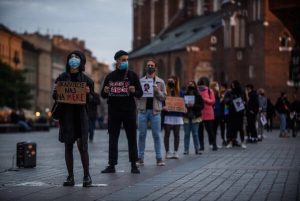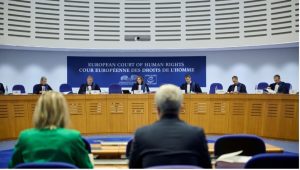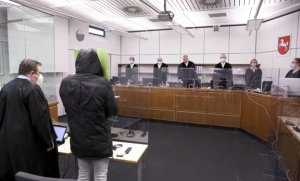By: Molly Osinoff
Impunity Watch News Staff Writer
POLAND – On December 14, 2023, the European Court of Human Rights (ECHR) held that Poland’s legislative amendments that forced a woman to travel abroad to have an abortion breached Article 8 of the European Convention on Human Rights, which protects the right to respect for private and family life.
 |
Poland’s abortion laws are among the most restrictive in Europe. Prior to 2020, abortion was legal in Poland in only three situations: fetal abnormalities, pregnancies caused by rape or incest, and threats to the women’s life or health. In 2020, the Polish Constitutional Tribunal’s ruling restricted abortion access even further. While the latter two reasons remain legal, the Tribunal banned abortions due to fetal abnormalities, which make up approximately 98% of the abortions performed annually in Poland, reasoning that terminating a pregnancy violates the unborn child’s Constitutional guarantee to life. As a result, the 2020 ruling is effectively a total abortion ban.
The plaintiff in the recent case, M.L. v. Poland, was scheduled for a legal abortion in early 2021 in a Warsaw hospital. After becoming pregnant in late 2020, she discovered that the fetus had Trisomy 21, also known as Down Syndrome. On the day before the procedure, however, the Constitutional Court’s judgment went into effect. M.L.’s doctors informed her that she could no longer have an abortion in the facility or in any other medical institution in Poland. As a result, M.L. traveled to the Netherlands, where she had an abortion in a private clinic.
M.L. alleged that she had been forced to make a choice between giving birth to a child with Trisomy 21 and traveling abroad to have an abortion, resulting in severe emotional suffering. The ECHR held in her favor, holding that Poland’s restriction on abortion in the instance of fetal abnormality, when sought for reasons of health and well-being, came within the Article 8 scope of the right to respect for her private life. Further, the Court noted that “private life,” as meant in Article 8 of the Convention, encompasses the right to personal autonomy and personal development and concerns subjects such as gender identification, sexual orientation, sexual life, physical and psychological integrity, including the decision whether to have a child or to become genetic parents.
For further information, please see:
ECHR – M.L. v. Poland – 18 Oct. 2021.
New York Times – Poland Court Ruling Effectively Bans Legal Abortions – 22 Oct. 2020.
Pulitzer Center – Poland’s Abortion Ban Is Changing Maternal Health Care – 13 Oct. 2023.



